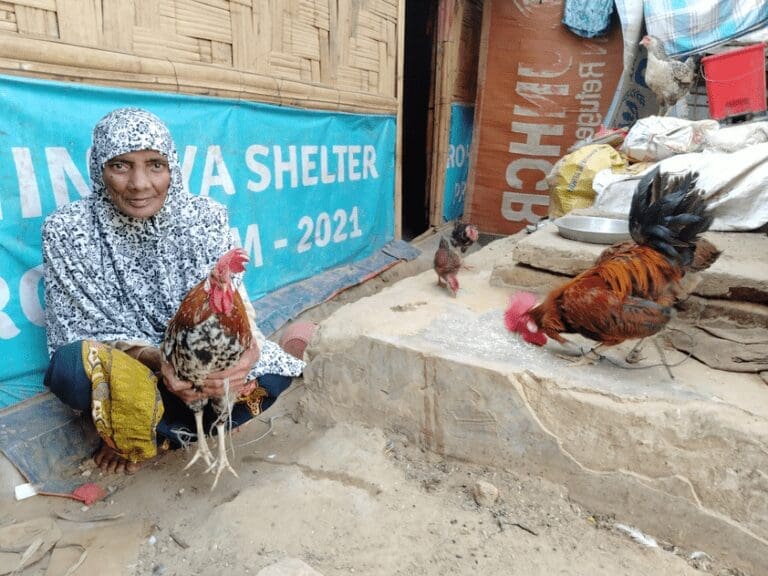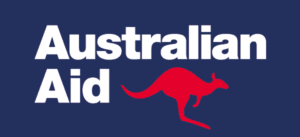Rohingya women, girls, boys and men have been forced to flee their homes in Myanmar from systematic discrimination, statelessness and targeted violence. Cox’s Bazar is now the largest refugee camp in the world. The work at Cox's Bazar includes support through the Australian Government through the Australian Humanitarian Partnership.

What
Responding to humanitarian and protection needs, and resilience building of Rohingya and host populations in Bangladesh

Where
Cox’s Bazar Refugee Camp and Host Communities
Who
115,828 people

Partner
Lutheran World Federation (LWF) & Rangpur Dinajpur Rural Service (RDRS)
Eggs to inspire
The forced displacement of Rohingya refugees from Myanmar in Bangladesh has led to a global humanitarian catastrophe. There are over 1 million Rohingya refugees currently living in camps in Cox’s Bazar in Bangladesh.

It’s estimated 880,000 Rohingya people from Myanmar now live as refugees in camps in Cox’s Bazar, Bangladesh.
Ms. Johora Khatun is one of those people, living with her daughter, and her husband who has a disability that prevents him from doing any work. Johora received three native chickens and training in poultry-raising through ALWS partner, RDRS Bangladesh. She says:
“Before training, I was not interested to rear the poultry, as maintaining hygiene in temporary chicken-cage or paper box was difficult in the congested living area
in Rohingya camps.
“Now I have learned about low-cost chicken’s food-processing technique, elements for chicks’ food preparation and measurement, as well as market linkage
system. This was massive learning for me.”
Now, the family use some of the eggs produced for food, while others are incubated to expand the flock. When chickens are 105 days old, she sells them.
Johora’s dream is to continue growing her business to ensure food security for her family. She also hopes to inspire other women like her to start their own
businesses.
This project includes support from the Australian Government through the Australian Humanitarian Partnership (AHP).

Find out more about...
| Bangladesh: Refugees and Host Communities | |
| What | Responding to humanitarian and protection needs, and resilience building of Rohingya and host populations in Bangladesh |
| Local Partner | RDRS – Bangladesh |
| Where | Cox’s Bazar Refugee Camp and Host Communities |
| Who | 115,828 people |
| ALWS Action | ALWS: $24,348 DFAT: $512,330 Total: $536,678 |
The forced displacement of Rohingya refugees from Myanmar in Bangladesh has led to a global humanitarian catastrophe. There are over 1 million Rohingya refugees currently living in camps in Cox’s Bazar in Bangladesh.
- 2,935 families received blankets for winter
- 400 pieces of Traditional Cloth (Thami) distributed to Rohingya refugee women and adolescent girls
- 2,445 people equipped to generate income through gardening, poultry and small business
- 1,430 Pregnant and Lactating received training and supplementary feeding
- 103,870 tree seedlings to restore environment
- 3,600 children received learning materials
- 3,300 high school children received menstrual and reproductive health training and dignity kits
- 108 people increased income in Cash-for-Work
Thank you!
Initiatives to rehabilitate the natural environment can have multiple direct and indirect benefits. Some of the benefits in addition to providing tree coverage and a clean environment include reduced child mortality rates due to malaria. Such initiatives also offer opportunities to introduce home gardening and animal husbandry for better health.
115,828 people received life-saving services, protection and skills in income-generating activities.
Gifts of Grace
Baby Bananas
Banana Splits
You help by supporting families to grow bananas... so they can work towards a better future.
-
$7
- Learn more
Gift in your Will
Lives you touch
How do you want to be remembered?
Now you can keep blessing others with a gift in your Will...

